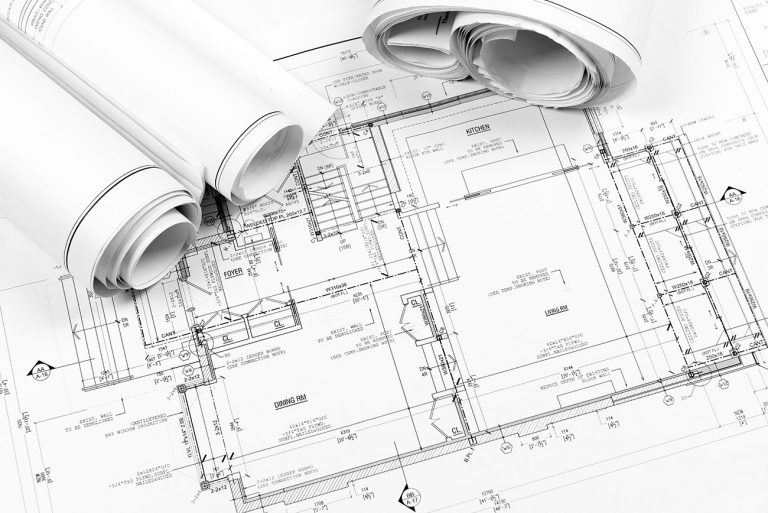
You own a home, but you need more space for your growing family. Or you’re ready for an upgrade or something fresh and new. Should you sell up and move? Renovate your existing house? Or even knock it down and build a new home from scratch?
It’s a decision that is rarely clear cut. And it’s inevitably driven by your financial and lifestyle realities.
So, as with any really big decision, it helps to start with the non-negotiables: the things we can’t change. Then move on to the “nice to have’s”.
Here are five key considerations that will help set you on the right path.
1. COST AND BUDGET
Costs can be deceiving when making the choice between moving, renovating or rebuilding. Unexpected and less obvious costs, in particular, can present dangerous hurdles that translate into unnecessary financial stress and disappointment.
Let’s take a closer look at the three options: renovating, selling and buying, or rebuilding, and the financial implications of each.
The Costs of Renovating
There are a few reasons why you might want to renovate.
A survey by finder.com.au revealed that 26 per cent of people renovated to increase the long-term value of their property, while 10 per cent of renovations were done to prepare a property for sale.
Then, of-course, there are the life-style aspects: making room for a large family, the desire to stay in the local area, or a sentimental attachment to the home.
A common mistake, though, is to underestimate the investment involved. Particularly if your current home needs a lot of work. Older homes, and those needing repairs, are likely going to require a big cash injection.
These hidden costs can make renovating very risky for those with a limited budget. And, let’s face it, that’s most of us.
The Costs of Selling
Selling and moving can be chaotic and stressful and, above all, expensive. It’s a decision that sometime fails to take into account all the costs involved, some of which are not obvious.
You will have to budget for legal fees and marketing costs, including any pre-sale repairs or renovations you do.
Then there are the so-called hidden costs like hiring removalists, staging your home and cleaning – or storing your possessions before you move into your new home.
The Costs of Buying
Buying introduces a whole new range of costs, including agent fees, title transfer fees, new loan application fees, lenders mortgage fees, valuation of a property and a deposit payable to the seller.
Stamp duty – the tax that homeowners are slugged with every time they buy a property – can be a significant barrier to moving, particularly at the higher end of the market.
Then there are the lawyers or conveyancers fees, building and pest inspections and strata search.
The Costs of Rebuilding
So why not just knock the whole place down and build a completely new property on the existing site? You already have a great block of land, why not utilise it? Re-building on your existing property could be beneficial in the long run, financially and logistically – short term pain, for long term gain. Stay where you are in a beautiful new home, with all the modern trimmings.
Again, do your sums.
Traditionally, knocking down and rebuilding will cost a little more – but a brand new home in an established area is gold. And if you plan a long-term stay there can be no better investment.
2. THE EQUITY YOU HAVE IN YOUR CURRENT HOUSE
When deciding whether it’s best to sell or renovate, you should also consider the equity you have in your current house.
How long you are likely to live in your home?
The general guideline is if you’re not going to stay in the house for five years, it’s not worth doing major building work.
If you have equity in your property but don’t want to sell, could you consider using it to buy your next home while keeping your old place as an investment?
Turning your current home into an investment means you can spend time letting it appreciate. This would also mean you could benefit from any capital gains if the market improves in the mid- to long-term. A benefit you won’t reap if you sell to buy now.
On the other hand, if you stay and renovate, this can be an effective way to increase the value of your home and sell it for a larger profit later down the track.
You may also find you are able to use existing equity in your house to cover the cost of renovating so then this would be a good option if you want to stay put.
Beware of Overcapitalising
If you do decide to renovate you need to be careful not to overcapitalise.
This essentially means spending too much on your renovation, with little hope of recouping your outlay when it comes time to sell.
If you are going to stay put and upgrade your home – and avoid overcapitalising – then you need to renovate smart. This means choosing projects that add real value to your lifestyle and property.
3. CURRENT MARKET CONDITIONS
Timing is everything when it comes to the property market. Prices can grow, stagnate and even shrink.
Will selling your home now give you the best return on your investment? If that’s not the case, it might be best to consider renovating instead.
And, of course, remember that if you sell in a ‘hot’ market you might get a great price for your property, but you are also likely to pay a premium for another home.
4. YOUR LIFESTYLE OR FAMILY CIRCUMSTANCES
Another big consideration is your lifestyle. What will produce the best outcome in both the short and longer term?
Consider your day-to-day preferences: whether you want to be close to family and friends, amenities such as schools, parks, shops and cafes, proximity to work, a preferred area and so on.
If your current area doesn’t tick these boxes, then it could be a clear indication that selling and buying somewhere new is the right thing to do.
On the other hand, if you love everything about the area but you need more space, then upsizing will likely be the better decision.
5. IS YOUR COUNCIL OPEN TO RENOVATIONS?
Council permits and approvals are also big factors when deciding whether to move, renovate or rebuild.
Apart from the costs involved when engaging with experts for plans, sometimes you need to get permits and council approvals. At a minimum, you will usually need a planning and building permit. Approvals can take time, so it’s a consideration that you should make early in the process.
Also think about your block size or heritage restrictions that may prevent or impact renovation or extension plans.
DON’T UNDERESTIMATE THE VALUE OF EXPERT ADVICE
Regardless of your initial preference, the complexities of renovating, selling/buying or rebuilding are best approached with the objectivity and expertise of experts.
When it comes to any decisions around planning, building and design, you won’t do better than speaking with the team at Woodford Homes.


